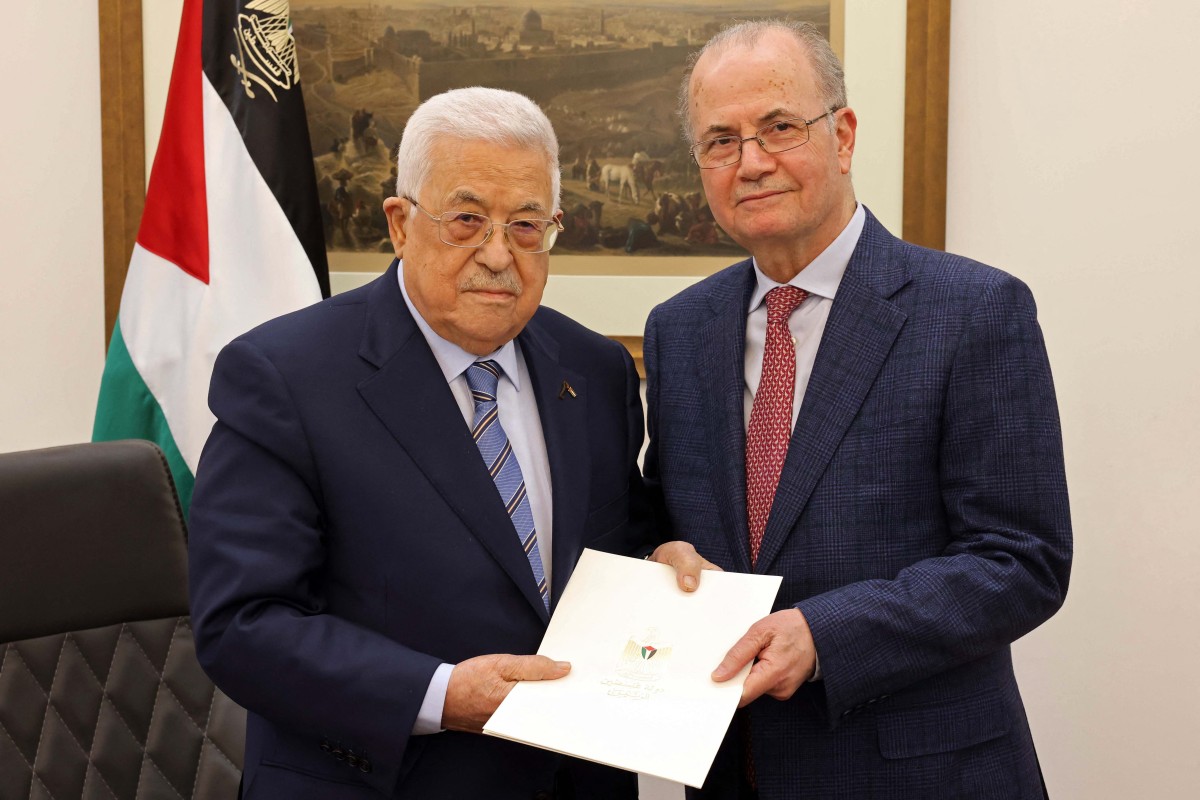Ramallah, Palestinian Territories – Palestinian president Mahmud Abbas’s Fatah party hit back at criticism by Hamas and other factions over his appointment of a new prime minister they said could deepen divisions as the war with Israel in Gaza rages.
Abbas appointed Mohammed Mustafa, a long-trusted adviser on economic affairs, as prime minister on Thursday and tasked him with forming a new government.
But the factions said in a statement on Friday that “making individual decisions, and engaging in formal steps that are devoid of substance, like forming a new government without national consensus, is a reinforcement of a policy of exclusion and the deepening of division”.
Such steps point to a “huge gap between the (Palestinian) Authority and the people, their concerns and their aspirations,” they said.
The other signatories were Islamic Jihad, the second-largest fighter group in Gaza, the leftist Popular Front for the Liberation of Palestine and the Palestinian National Initiative, a political party which seeks a third way between Fatah and Hamas.
Mustafa replaces Mohammed Shtayyeh, who resigned less than three weeks ago citing the need for change after the Hamas attack of October 7 triggered war with Israel in Gaza.
He accepted the appointment and said in a letter to Abbas published on Friday he was “well aware of the severity of the… dire circumstances that the Palestinian people are going through”.
Fatah hit back at Hamas late on Friday, accusing the movement in a statement of “having caused the return of the Israeli occupation of Gaza” by “undertaking the October 7 adventure”.
This led to a “catastrophe even more horrible and cruel than that of 1948”, a reference to the displacement and expulsion of some 760,000 Palestinians from their lands at the creation of Israel, they said.
“The real disconnection from reality and the Palestinian people is that of the Hamas leadership,” said Fatah, accusing Hamas of not having itself “consulted” the other Palestinian leaders before launching its attack on Israel.
The October 7 attack resulted in the deaths of around 1,160 people, mostly civilians, according to an AFP tally of Israeli figures.
The retaliatory Israeli military offensive in Gaza has killed at least 31,490 people, most of them women and children, according to the Hamas-run territory’s health ministry.
Mustafa, 69, now faces the task of forming a new government for the Palestinian Authority, which has limited powers in parts of the Israeli-occupied West Bank.
Control of the Palestinian territories has been divided between Abbas’s Palestinian Authority in the West Bank and Hamas in the Gaza Strip since 2007.
Analysts have said Mustafa’s closeness to Abbas would limit chances for major reform of the Palestinian Authority.
The United States and other powers have called for a reformed Palestinian Authority to take charge of all Palestinian territories after the war ends.
But Israeli Prime Minister Benjamin Netanyahu’s government has rejected post-war plans for Palestinian sovereignty.







